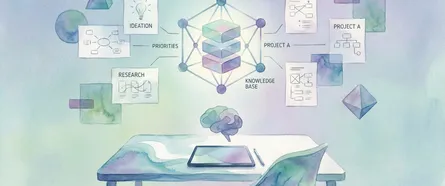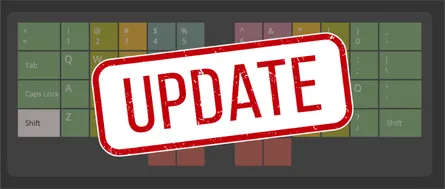
The Truth About Multi-Tasking
- Eric Kraus
- productivity
- Feb 01, 2018
Introduction
The question has been asked many times before…
“Is it possible for people to multi-task?”
My argument is no - all we are really doing is switching tasks quickly (or not even that). We are missing out on one of the greatest skills that differentiates us from all other creatures: critical and creative thinking .
Task Processing
Productivity experts generally agree, humans just aren’t made for multi-tasking. Yet many people claim they are great at it.
We even see job descriptions with qualifications like: “seeking someone that can prioritize and multi-task effectively.”
In order to have an opinion on the matter, it’s important we first understand the definition of the word. The term multi-tasking comes from modern computer lingo describing technology that processors have gained which allows them to complete multiple tasks (operations) “at the same time”.
Sequential Tasking
With the invention of the first computers, tasks were primarily executed in a discrete manner: each task needed to wait for the previous to complete before the processor could load the next to execute.
Example...
A visit to the motor vehicle office will be a crushing reminder of this. You wait patiently until your number is called. When it’s your turn, your request, regardless of how complex it is, gets the undivided attention of your agent. After you license is renewed, you are on your way, and the next number is called. This way processing is designed to be fair, effective and minimize error.
Multi-Tasking
With the evolution of modern computing, we don’t have the same limitations as the past. Modern processors offer more scale and efficiency without introducing any errors.
However, the term multi-tasking is actually somewhat of a misnomer. Computer processors (specifically “threads”) can only work on one task at a time…so just like humans, processors must switch between tasks.
Unlike humans, computer processors can run and switch task at lightning speed, making it seem like they are being done “at the same time”.
Eventually, computer technology evolved to include multiple-core CPUs where processes could truly be executed in parallel, at the same time.
Humans have not evolved the same.
Busy Barista
Here’s a modern example: you walk into a coffee shop and order a cup of coffee.
The barista is working on another drink order, but while the beans are grinding, makes your drink and you’re on your way. The barista then returns to finishing the first drink and everyone is happy.
One could argue this talented barista made two drinks at the same time; however, we know technically this isn’t really the case. There was simply a waiting period while another task was running on its own.
So when it comes to human multi-tasking, the question still stands: “Is it possible for us to multi-task?” The answer, yes definitely, if we agree we are just quickly switching between two.
It’s All About The Switching
Processors are designed to be extremely efficient at switching quickly between tasks. They are so efficient…the experience to the end user appears like things are happening at the same time, but we know now, that’s not technically the case.
Switching At Home
The coffee shop example is a great one for comparison. For a barista, switching between two or more similar, routine tasks is totally feasible.
Another example is making dinner. Cooking 3 or 4 things at the “same time” requires a skill in switching between doing dozens of individual things, one after another (rather than all at the same time ). The tolerance for little bits of error is acceptable as well.
Switching At Work
As professionals, we are typically engaged in more complex tasks that require focus and deeper, analytical thinking.
This analytical thinking type work requires a longer “ramp up” time and typically does not lend itself well to this “fast switching”.
Our jobs also generally have less acceptance for errors and require extra attention to detail. There is good research that shows the more complex a task is, the more that switching between them will cause a loss in productivity.
So, while we have been led to believe that multi-tasking is a desirable skill in the professional world, the resulting loss in productivity leads many to recognize this strategy to “get more done” as a myth.
Sorry, could you repeat the question
What about attending a meeting and writing an email at the same time?
Let’s be honest. You appear to be in the meeting, but you aren’t paying attention. The email (or other task) is more important and that’s where your focus is. But hey, no judgement, you probably didn’t ask to be there in the first place.
So… you are only paying just enough attention to hear if your name is called…
The reality is, that creates a trade-off in productivity: making you slower at writing that email.
Or, you are fully committed to your email, and you’ll need to say, “Sorry, could you repeat the question”.
Either way I’d argue, you’re not doing two tasks well.
A Culture Of Instant Gratification
Over the years, we’ve created a culture of instant gratification: one that rewards quick responses, immediacy over creativity.
Don’t get me wrong - there is absolutely value in having a bias towards action … And, I am a huge proponent of executing now and not waiting until perfect .
However, our go-go-go mentality is causing people to fall short of of our human potential to develop new ideas.
We go from meeting to meeting in which we are interrupted dozens of times with text/instant messages or email alerts. At the end of the day, what have we accomplished?
People brag about how busy they are. We should be bragging about how we are fixing that!
Our Biggest Strength
Before we get down on ourselves for being terrible multi-taskers…we need to recognize what our true strength is.
Our brains were simply not designed for switching; they were designed for deep, analytical and creative thinking.
Deep analytical thinking is what makes humans unique. Not context switching.
These days, we don’t spend nearly enough time dedicated to using our super-power: Creative Thinking
Culture of Creativity
I’m making a case that we need to build a new culture: one centered around the values teamwork and creativity that rewards improvement, not just faster/more output.
We need to set aside time in our day for dedicated thinking and creativity. Some might argue this is called “getting actual work done”.
This is what differentiates us from computers…and even AI! …and will help solve world problems and create a future rich for the next generation.

